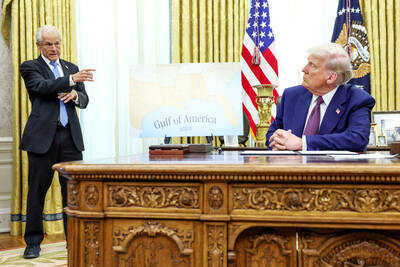A regional Latin American meeting has focused on defusing tensions between Colombia and Venezuela, despite Bogota’s absence, which was characterized by Caracas as a “huge mistake.”
Defense and foreign ministers from Union of South American Nations (UNASUR) member countries were welcomed as the meeting opened on Friday by Ecuadorean Foreign Minister Fander Falconi.
But noticeably absent from the UNASUR meeting were Colombian Defense Minister Gabriel Silva and Colombian Foreign Minister Jaime Bermudez.
The gathering is addressing growing bilateral spats in the region, including tensions between Peru and Chile over military espionage reportedly sponsored by Santiago and a months-long, escalating row between Bogota and Caracas.
Tensions between the two nations, spurred by a US deal with Bogota allowing US forces to run anti-drug operations from Colombian bases, has resulted in the severing of diplomatic ties and even talk of military conflict between the neighbors.
Venezuelan Foreign Minister Nicolas Maduro told reporters that Colombia’s “absence is inexplicable, a huge mistake and an act of contempt towards UNASUR.”
On Thursday evening, Bermudez said “the recent escalation in threats against the Colombian government” had made it “impossible to hold respectful discussions during the meeting.”
He said Bogota was sending to UNASUR a “technical” delegation only, without the inclusion of ministers.
The delegation presented at the meeting a letter from Bermudez giving assurances about the US-Colombian military agreement, Brazilian Foreign Minister Celso Amorim told reporters.
While the contents of the letter have not been divulged, Amorim said: “I believe some progress has been made over this issue that worries us so much, that is [presenting] formal assurances” about the US-Colombian agreement at UNASUR.
Venezuela suspended diplomatic relations with Colombia on July 28 in response to the US-Colombian military base deal.
The agreement, signed on Oct. 30, involves seven Colombian bases and sparked consternation throughout the region, particularly irking Caracas.
Venezuela shares a 2,000km border with Colombia and has denounced the deal, saying it poses a military threat to the sovereignty of Latin American countries.
The tension between Colombia and Venezuela has grown so heated that both sides have talked of war.
Early this month, Venezuelan President Hugo Chavez called on his countrymen to “prepare for war” and the Colombian defense minister said on Friday that “for the first time in decades, the defense ministry must study how to prepare to face a foreign threat.”
In addition to harsh rhetoric, the tensions have also produced border confrontations, and Venezuela, which is Colombia’s second biggest market, has drastically reduced its imports from its neighbor.
Both the US-Colombian deal and the tensions it has caused between Caracas and Bogota have raised concerns throughout the region.
UNASUR ministers are expected to seek security and confidence-building measures that can reassure them and Caracas that the US deal will not threaten their sovereignty.
Among the proposals being considered is a Peruvian suggestion for a “regional non-aggression pact.”
Maduro said UNASUR had also agreed to call for a meeting with US Secretary of State Hillary Clinton to discuss the military base deal with Colombia, which the US State Department in a recent letter said harbors no aggressive intentions.
Maduro said that Ecuador, as current president of the regional group, was tasked with setting a time and place for the UNASUR-Clinton meeting.

‘EYE FOR AN EYE’: Two of the men were shot by a male relative of the victims, whose families turned down the opportunity to offer them amnesty, the Supreme Court said Four men were yesterday publicly executed in Afghanistan, the Supreme Court said, the highest number of executions to be carried out in one day since the Taliban’s return to power. The executions in three separate provinces brought to 10 the number of men publicly put to death since 2021, according to an Agence France-Presse tally. Public executions were common during the Taliban’s first rule from 1996 to 2001, with most of them carried out publicly in sports stadiums. Two men were shot around six or seven times by a male relative of the victims in front of spectators in Qala-i-Naw, the center

Canadian Prime Minister Mark Carney is leaning into his banking background as his country fights a trade war with the US, but his financial ties have also made him a target for conspiracy theories. Incorporating tropes familiar to followers of the far-right QAnon movement, conspiratorial social media posts about the Liberal leader have surged ahead of the country’s April 28 election. Posts range from false claims he recited a “satanic chant” at a campaign event to artificial intelligence (AI)-generated images of him in a pool with convicted sex offender Jeffrey Epstein. “He’s the ideal person to be targeted here, for sure, due to

DISPUTE: Beijing seeks global support against Trump’s tariffs, but many governments remain hesitant to align, including India, ASEAN countries and Australia China is reaching out to other nations as the US layers on more tariffs, in what appears to be an attempt by Beijing to form a united front to compel Washington to retreat. Days into the effort, it is meeting only partial success from countries unwilling to ally with the main target of US President Donald Trump’s trade war. Facing the cratering of global markets, Trump on Wednesday backed off his tariffs on most nations for 90 days, saying countries were lining up to negotiate more favorable conditions. China has refused to seek talks, saying the US was insincere and that it

As Elon Musk called one of US President Donald Trump’s top economic aides a “moron,” the White House on Tuesday declared that “boys will be boys.” Musk and long-time Trump trade adviser Peter Navarro have been squabbling publicly over Trump’s decision to impose sweeping tariffs on most of its trading partners. The move has triggered a market sell-off and prompted analysts to wonder if the US is headed into a recession. “Look, these are obviously two individuals who have very different views on trade and on tariffs,” White House press secretary Karoline Leavitt said. “Boys will be boys, and we